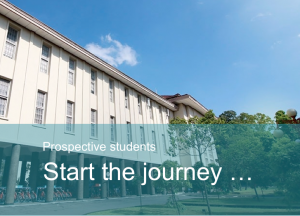Program Educational Objective (PEO)
The aim of the UGM Computer Science Study Program is to create an excellent Computer Science Study Program in Indonesia with international achievements and reputation through the following strategies:
</tr >
| PEO 1 | International standard education that contains innovative, soft skills, and knowledge of the latest technology to produce graduates who are competitive, innovative, responsible and have high confidence. |
| PEO 2 | Environmentally sound research that becomes a national and international reference and can provide solutions to the nation’s problems based on the wealth of human and natural resources as well as local wisdom by involving stakeholders. |
| PEO 3 | Community service based on science, appropriate technology, and advocacy that is able to encourage self-reliance and community welfare in a sustainable manner and make campus a vehicle for developing science and technology innovation for the community. |
| PEO 4 | The development of human resources, organizations and governance that are professional, fair, transparent, and able to work together to support the implementation of a learning process that is adaptive to Industry 4.0. |
Program Learning Outcome (PLO)
The PLOs have been simplified from eight objectives to five objectives based on the suggestions from stakeholders and alumni, the reviews from the curriculum team, as well as the updates in the Vision, Mission, and PEOs of the programme. The graduate’s profiles for the Bc-CS have been updated into AI engineer, Computer Scientist, Software Engineer, Data Scientist, Cloud Engineer, and Digital Entrepreneur.
| PLO 1 | Attitudes and Values Student possess a set of universal and fundamental values and principles: universal ethics, patriotism and world peace, social and environmental sensitivity, pluralism and fair play, and rule of law. |
| PLO 2 | Foundational and theoretical knowledge Student master the foundational knowledge and theoretical concepts of the field of computer science, which include mathematics, logic, algorithms, computing, languages, data structures, programming, computer systems and networks, data processing, software, intelligent systems, and numerical analysis. |
| PLO 3 | Applied knowledge Student master the applied concepts of computer science, which include modelling and optimization methods, efficient cloud infrastructure provision and management, data extraction and analysis, software deployment for algorithm development and intelligent computing systems. |
| PLO 4 | Problem solving skills Student are able to apply the basic, theoretical, and applied knowledge that has been acquired, as well as adapt state-of-the-art developments through independent and group research to find constructive solutions to problems encountered in the form of systems or products. |
| PLO 5 | Professional attitudes Graduates have good interpersonal, communication and learner skills. Specifically, graduates are able to work together in teams and have a sense of responsibility for their own work and can be assigned tasks to support the achievement of team work results; able to communicate with stakeholders from various backgrounds, use English, and write scientific papers according to the right rules; have the skills to keep up with state-of-the-art developments in the field of computer science in particular and to deepen previously acquired knowledge in the context of lifelong learning. |

